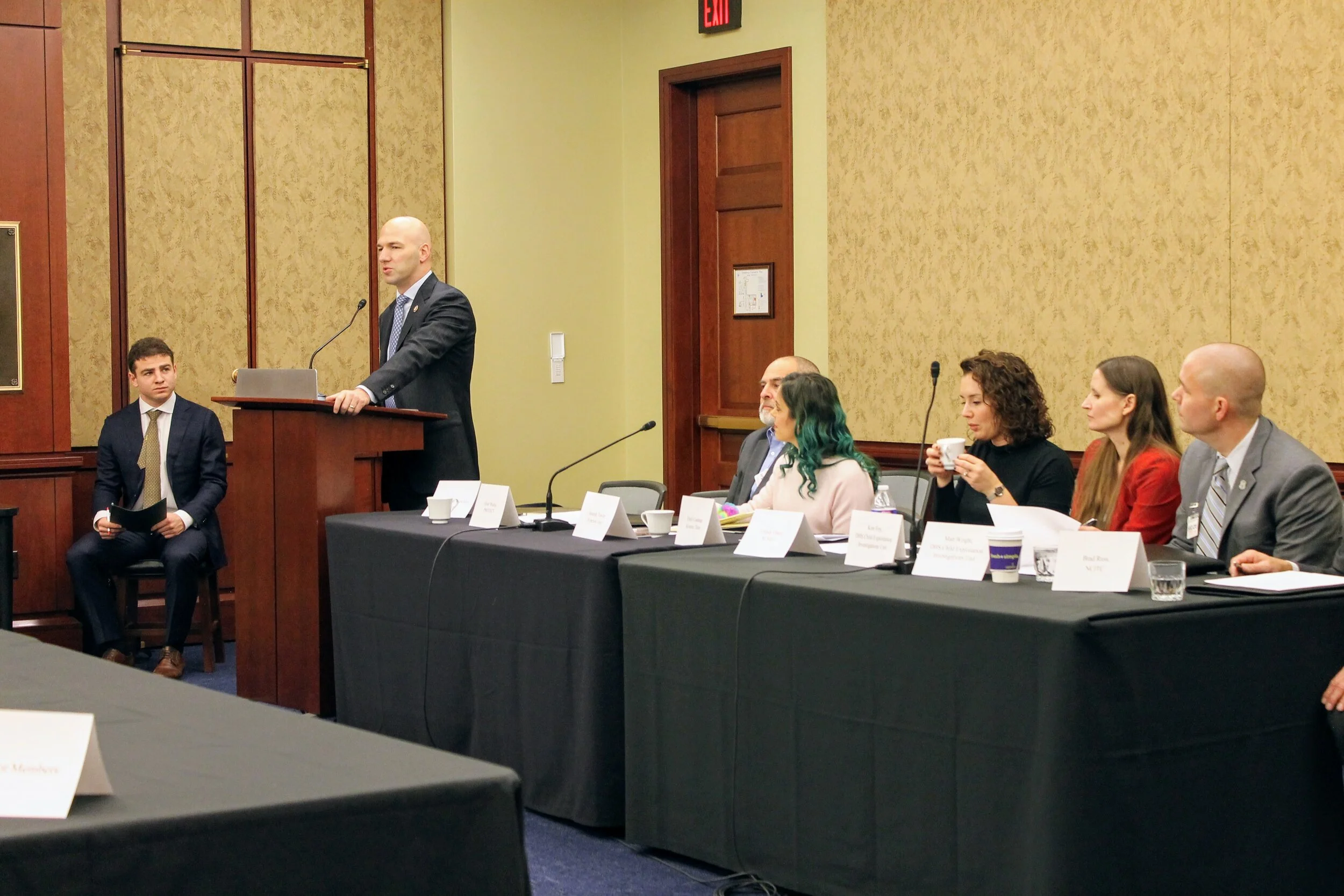On December 10th, the Millennial Action Project partnered with Congressional Future Caucus Co-Chair Rep. Anthony Gonzalez (R-OH-16) to host a roundtable discussion on combating child exploitation imagery online. The roundtable included a panel of experts and advocates engaged with this issue from various perspectives, including nonprofit advocates, law enforcement, and technologists.
Rep. Anthony Gonzalez kicked off the event with brief remarks on the scope of the problem and what led him to explore legislative remedies and expanded federal support for anti-abuse measures. The congressman pointed to a recent series of investigative reports from the New York Times that helped raise initial awareness about the quickly growing problem of online exploitation, making clear the uphill battle law enforcement and anti-abuse activists face, as well as the shortcomings of past congressional action in this fight.
From there, roundtable attendees shared their personal experiences and their organization’s role in combating online child exploitation. This provided an opportunity to elucidate the complexity of anti-abuse work, where multiple agencies and organizations must effectively share information and prioritize enforcement in the face of a massive caseload. Participants used 2008’s Protect Our Children Act, which aimed at combating the growth trends in this type of abuse, as a frame, noting that the law, while well-intentioned, fell short in funding and implementation. The problem has only ballooned since then. With the emergence of handheld technology and more prevalent evasive technologies since 2008, such as use of the dark web, roundtable attendees made clear the need for more tools in the fight.
Beyond funding gaps, panelists focused on how policy considerations and other forms of technology affect their work. While tech can aid illicit actors, it has also been a boon to law enforcement. New strategies powered by artificial intelligence, such as machine learning applied to backlogged databases of child exploitation evidence, are overturning new clues and cutting down on high turnover rates among some anti-abuse teams due to the extremely difficult nature of the subject.
Additionally, high level debates in Congress on the issue of data privacy also have an outsized impact on anti-abuse work online. Growing consumer demands for data privacy have brought the issue to the fore in 116th Congress, but definitive action remains elusive and nuance needed. While many on the panel expressed understanding and even endorsed stronger consumer data privacy laws, they also made clear the challenge certain encryption laws can provide to investigators and the benefit received by criminals. Many expressed frustration with online platforms that deploy encryption on their sites as a means of reducing their own liability for illicit behavior by users, rather than working with law enforcement to counter these activities. Participants highlighted the thorny nature of these debates, suggesting simply that data privacy should not handicap law enforcement efforts on a worsening problem, and that online platforms which host this behavior, knowingly or not, must be held more accountable
The panel provided useful setting for members of Congress to hear directly from those most engaged with this issue and ask candid questions to further their own understanding. On the same day, Rep. Gonzalez introduced a bipartisan bill in the House that would improve coordination between the different elements of anti-abuse work. H.R. 5376, or the END Child Exploitation ACT would double the amount of time that technology companies must keep reports of child sexual abuse that they make to the National Center for Missing and Exploited Children. Importantly, this bill would allow for more thorough investigations and increase tech companies’ responsibility in the fight.



